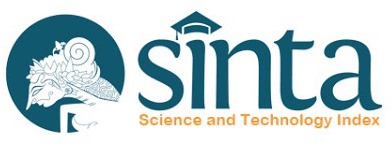- Focus and Scope
- Section Policies
- Peer Review Process
- Publication Frequency
- Open Access Policy
- Archiving
- About Journal
- Article Processing Charges
Focus and Scope
Squalen publishes original and innovative research to provide readers with the latest research and knowledge on, emerging technologies of marine and fisheries postharvest and biotechnology from tropical waters.
Scope :
1. Marine and fisheries postharvest, preservation and processing, including mechanization engineering
2. Fish and fishery products quality and safety
3. Marine ecology and pollution related to fish and fishery products
4. Biodiscovery/marine natural products
5. Marine biotechnology and bioprocess engineering
The Journal may also publishes review articles by invitation that providing an overview and discussion of the latest developments in topics of specific interest to researchers in this field of activity.
Section Policies
Articles
Editorial
Front Mater
Back Mater
Peer Review Process
The peer review process is similar for all journals, with some variation expected between journals. Once an author submits a manuscript through the online submission process, it is automatically logged in and checked to make sure that the submission is complete and has been prepared according to the Squalen submission instructions. At this time a receipt of manuscript acknowledgement is sent to the author to let them know that their manuscript has been received. Each manuscript is then read by an editor (either individually or in consultation) to assess its suitability for the journal according to the guidelines determined by the editorial policy. This is an important step to ensure that (1) the content falls within the scope of the journal, (2) the manuscript follows editorial policy and procedural guidelines, and (3) that it does not contain an unacceptable level of overlap with manuscripts that are already in press. A manuscript could be rejected without additional review for one or more of the previous reasons, and the author notified.
While manuscripts can be rejected without involving additional reviewers, they cannot be accepted for publication without additional review. So if a manuscript is not rejected when first received, it is then sent out for review to a minimum of two additional reviewers who are part of the journal's cadre of reviewers. Review by Associate Editors or staff may compliment this process. The double‐blind review the identity of the authors is masked during the review process. Both the authors and the reviewers are unaware of each other's identity.
Once reviewers are chosen and they accept their review assignment, the real process begins. Most reviewers use some form of checklist that covers some or all of the journal requirements. The reviewers return their recommendations and reports to the editor (via the online submission system), who assesses them collectively, and then makes a decision, either on his or her own or in consultation with other editors on whether to reject the manuscript (either outright or with encouragement to resubmit), to withhold judgment pending major or minor revisions, to accept it pending satisfactorily completed revisions, or to accept it as written. Rarely, if ever, is a manuscript accepted as written! For manuscripts accepted pending revision, the authors must submit a revised manuscript that will go through all or some of the stages above. Once a manuscript has been revised satisfactorily (more than one revision may or may not be allowed) it will be accepted and put into the production process to be prepared for publication.
Publication Frequency
Squalene bulletin published 3 times a year published, in May, August and December.
Open Access Policy
This journal provides immediate open access to its content on the principle that making research freely available to the public supports a greater global exchange of knowledge.
Archiving
This journal utilizes the LOCKSS system to create a distributed archiving system among participating libraries and permits those libraries to create permanent archives of the journal for purposes of preservation and restoration. More...
About Journal
Squalen, a forthcoming international journal, is published three times per year on May, August and December and its first issue was published on 2011. Squalen is the finest peer-reviewed research journal in fields of marine and fisheries postharvest, fish processing and preservation, food safety and environment, biotechnology and bio-discovery of marine and fisheries on the basis of its originality, importance, interdisciplinary interest, timeliness, accessibility, elegance and surprising conclusions. Squalen also provides insightful and arresting news and interpretation of topical and coming trends of marine and fisheries postharvest. Squalen total citation (since 2011) based on google scholar reached 16 citations with the H-index 3.
Article Processing Charges
Every article submitted to Squalen Bulletin Journal will not have any 'Article Processing Charges'. This includes submitting, peer-reviewing, editing, publishing, maintaining and archiving, and allows immediate access to the full text versions of the articles.










